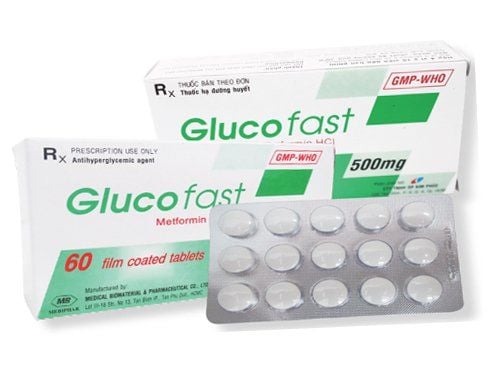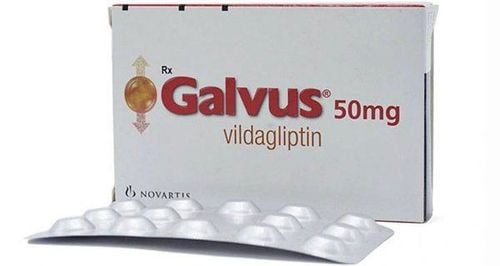This is an automatically translated article.
Diabetes can lead to many dangerous complications, especially kidney failure. To prevent complications of kidney failure in people with diabetes, patients need to adhere to the correct treatment regimen, have a reasonable diet and lifestyle...
1. Blood sugar control
Blood sugar control is the first important thing to do for diabetics. Conventional insulin therapy with injections 3.4 times/day may reduce the risk of kidney disease in people with type 1 diabetes. Diabetics who have complications of kidney failure will find it more difficult to stabilize blood sugar than those without complications.
Optimal glycemic control for most patients is HbA1c <7%,
Fasting capillary blood sugar 80-130 mg/dl (4.4- 7.2 mmol/l) Postprandial blood sugar < 180 mg/dl ( 10 mmol/l) (calculated from 1-2 hours after starting to eat) Patients need to check A1c periodically to control the average blood sugar for 3 months. From there, doctors will understand the status of blood sugar control and make timely adjustment plans, helping patients soon achieve the desired blood sugar level.
2. Blood pressure control
High blood pressure increases pressure on the heart, affects the walls of blood vessels, easily leads to cardiovascular diseases such as heart attacks, strokes and more severe kidney complications.
Diabetics will be consulted by a doctor and given a target blood pressure level suitable for each person's physical condition, characteristics and medical situation.
If proteinuria is <1g/24h, blood pressure is <130/80 mmHg If proteinuria is >1g/24h, blood pressure is <125/75 mmHg
3. Control blood lipids
If the patient has concomitant cardiovascular disease, it is necessary to control blood lipids LDL-C<100mg% or <70mg%, HDL>50 mg%, Triglyceride <150 mg%.
4. The right diet

Bệnh nhân nên hạn chế các loại thực phẩm giàu chất béo
Patients need to control the amount of protein in their daily diet. The appropriate amount of protein is 0.6-0.8g/kg body weight/day Follow a light diet, reduce salt <2.4g/day Eat lots of vegetables, tubers and fruits Limit foods rich in fat, fried foods fried, fast foods, processed foods Do not drink alcohol, smoke, use stimulants
5. Increase physical activity
Patients need to increase physical activity, exercise daily. Patients should control their weight. People who are overweight or obese need to lose weight with BMI <25 kg/m2.6. Manage stress well
Stress is one of the factors that increase blood sugar and blood pressure. Therefore, the patient needs to balance his life, not to let himself be stressed about life or work. However, a strict diet and activities, abstaining from many things as well as the fatigue caused by diabetes can make the patient sad, pessimistic, and easily angry. Patients often find it difficult to maintain a healthy lifestyle and proper diet over a long period of time. That leads to stress and fatigue. Therefore, patients need to be very attentive, keep their spirits at ease, and control their emotions so that the treatment process can be highly effective.
7. Health check, periodical tests
Patients with diabetes and chronic kidney disease stage 1-2 need to have kidney function tests every 6 months. For patients with diabetes and chronic kidney failure stage 3-5 is every 3 months.
In addition, patients need to monitor proteinuria, electrolytes, minerals, nutritional status, anemia, bone-related hormones to prevent other dangerous complications of diabetes.
In order to effectively prevent complications of kidney failure in diabetics, it is necessary to follow the routine examination schedule and proactively carry out early renal failure screening tests, take measures to intervene as soon as the signs appear. abnormal signal.
Currently, Vinmec Times City International General Hospital has applied the technique of early kidney failure screening for diabetics by urine test L-FABP according to Japanese technology on modern automatic AU680 testing machine. , for quick and accurate results, effectively supporting the diagnosis and treatment of diseases more effectively.

Bệnh viện Đa khoa Quốc tế Vinmec cung cấp dịch vụ xét nghiệm nước tiểu sàng lọc suy thận
The urine test technique to screen for early kidney failure is applied in the following cases:
Kidney failure screening for a health examination program or mass screening if the doctor or patient has doubts about kidney function. Kidney failure screening for patients with diabetes, high blood pressure, Patients with kidney diseases: acute and chronic glomerulonephritis, nephrolithiasis, pyelonephritis, polycystic kidney, horseshoe kidney , Monitoring patients before and after kidney transplant Patients hospitalized in the emergency department Undergoing surgery Patients with sepsis Indicated to take X-rays with the use of iodinated contrast agents...
Please dial HOTLINE for more information or register for an appointment HERE. Download MyVinmec app to make appointments faster and to manage your bookings easily.
Source referenced article: Vietnam Society of Endocrinology and Diabetes












